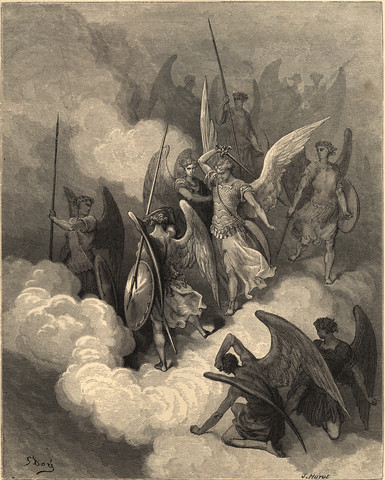Are You of the Fire?
For our God is a consuming fire.
Heb. 12:29
Our God is mysterious, holy, and wholly other. Therefore, we have limits in our ability to comprehend the characteristics of his nature and attributes (Isa. 55:8-9). To assist us, the Lord uses human nature (i.e., anthropomorphism), qualities of creation, and ideas (i.e., personification) to describe what he is like.
By example, the Bible describes the Lord as fire (Heb. 12:29). As fire, the Lord spoke from the burning bush (Ex. 3:22); he dwelt above the Israelites as they traveled and camped in the Sinai (Ex. 13:22); he resided in the Holy of Holies as fire between the wings of the cherubim (Ezek. 10:2), and he revealed himself to the prophet Ezekiel as “a great cloud with raging fire engulfing itself†(Ezek. 1:4).
In keeping with God’s own revelation in the Old Testament, the Holy Spirit visits the apostles on the Day of Pentecost as fire. “Then, what looked like flames or tongues of fire appeared and settled on each of them†(Acts 2:3 NLT).
The God who had appeared to them as fire throughout all their long history was now dwelling in them as fire. He had moved from without to the interior of their lives. The Shekinah that had once blazed over the mercy seat now blazed on their foreheads as an external emblem of the fire that had invaded their natures. This was Deity giving Himself to ransomed men. The flame was the seal of a new union. They were now men and women of the Fire (pg. 100).
The exterior God of fire had moved into believer’s hearts bringing “the hope of glory†(Col. 1:27) to live within them, operating through them, and manifesting himself on them. This fire brings about a new union between God and humankind transforming believers into a people of the flame: passionate lovers of our Lord and Savior Jesus Christ. Because of Christ finished work on the Cross, Divine Life has entered our hearts granting us new intimacy with God, enabling grace to live the Christian life, and power for witness to the world.
On the first day of Pentecost He returned, not this time to be with them externally—clothed that sinless humanity that God had prepared for Him, being conceived of the Holy Spirit in the womb of Mary—but now to be in them imparting to them His own divine nature , clothing Himself with their humanity, . . . .
[Ian Thomas, The Saving Life of Christ/The Mystery of Godliness (Grand Rapids, MI: Zondervan, 1961), 17.]
This divine flame burns within us developing a hunger for holiness and passion for Jesus. This renewed spiritual hunger makes us a people of the burning heart: wholly sold out for his glory. The Holy Spirit’s internal fire actively enables each of us to do ministry by equipping all of us in the gifts of the Spirit. The indwelling flame melts our hearts producing yielded wills ready to do the will of our Lord. “The mark of the fire was the sign of divinity; they who received it were forever a peculiar people, sons and daughters of the Flame†(pg. 101).
God’s fire overcomes blackness defeating all the powers of the evil one. His fire purifies bringing all selfishness to the surface. Fire destroys thereby burning away all sin.
Deity indwelling men! . . . Man, who moved out of the heart of God by sin, now moves back into the heart of God by redemption. God, who moved out of the heart of man because of sin, now enters again His ancient dwelling to drive out His enemies and once more make the place of His feet glorious (pg. 100).
Quotes not otherwise cited are from A. W. Tozer, God’s Pursuit of Man (Camp Hill, PA: Wingspread, 1950).









